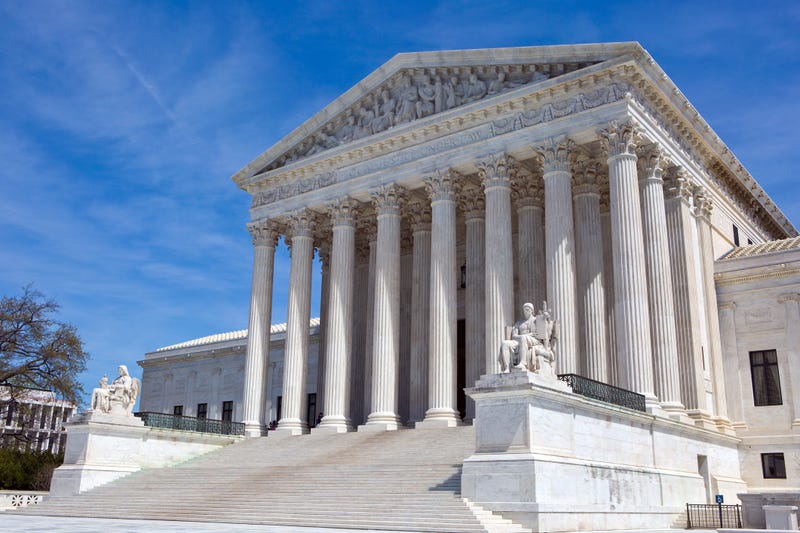
The United States Supreme Court will go on its annual summer vacation at the end of June, and as the deadline nears, several cases could potentially receive rulings before the justices break.
Here are three cases the court could rule on before heading on vacation.
Among the cases that Americans are most eager to hear is the court’s ruling on President Biden’s student loan forgiveness plan.
Last year the president announced his plan to erase up to $20,000 in debt for more than 40 million Americans. The plan was said to ease the “financial” harms caused by the COVID-19 pandemic, but not everyone agrees that Biden has the authority to make such a move, leading to legal challenges.
Some of the conservative justices on the court have found themselves asking similar questions, sharing their skepticism around whether or not Biden has the power to do so during oral arguments.
However, the three liberal justices and conservative Justice Amy Coney Barrett have questioned the legal standing of the plaintiffs and whether or not they have the right to sue in the first place.
The justices have not made it known which way they are leaning, but their decision could result in millions of borrowers seeing relief or not.
Free speech and LGBTQ+ rights:
The Supreme Court is hearing a case involving a Colorado website designer who sued the state for its law requiring her to offer her services to everyone, regardless of sexual orientation.
In her lawsuit, filed in 2016, Lorie Smith argued that the law restricted her right to free speech as she designs websites for couples getting married.
The case also calls into question religious freedoms that Smith alleges are being infringed upon through the Colorado law.
During oral arguments, the conservative-leaning court appeared to be sympathetic to Smith.
SCOTUS has long upheld using race as a factor in college admissions to ensure equality in higher education.
However, the practice could now be ruled against as the court is weighing two cases, which allege Harvard and the University of North Carolina are discriminating against white and Asian American students.
The two cases call into question whether or not affirmative action should be ended, as the plaintiffs say it has caused harm to students who qualify for admission on every factor except their race.
Schools argue that if the practice were to be cut, the number of minorities admitted to universities would decrease.
The court’s 6-3 conservative majority has called the use of racial classifications “dangerous” while also sharing skepticism as to whether or not affirmative action had any “educational benefits.”


